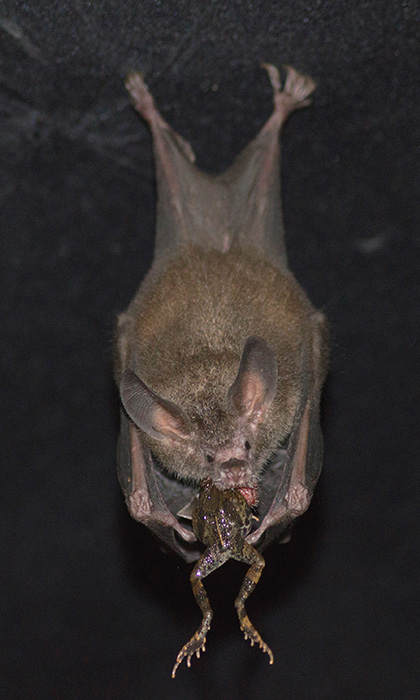News
From the College of Natural Sciences
Farming ants cultivate one fungal crop
AUSTIN, Texas—Just as wheat is cultivated by different people around the world, different species of fungus-farming ants cultivate essentially the same fungus; show biologists from The University of Texas at Austin, providing insight into the evolution of this well-known symbiosis. Fungus-farming ants are dependent on cultivating fungus gardens fo...Eavesdropping fringe-lipped bats spread culture through sound
AUSTIN, Texas—Like a diner ordering a dessert based solely on the “oohs” and “aahs” of a customer eating the same dish the next table over, frog-eating bats learn to eat new prey by eavesdropping on their neighbors as they eat, report biologists from The University of Texas at Austin. A fringe-lipped bat (Trachops cirrhosus) eating a túngara fro...















